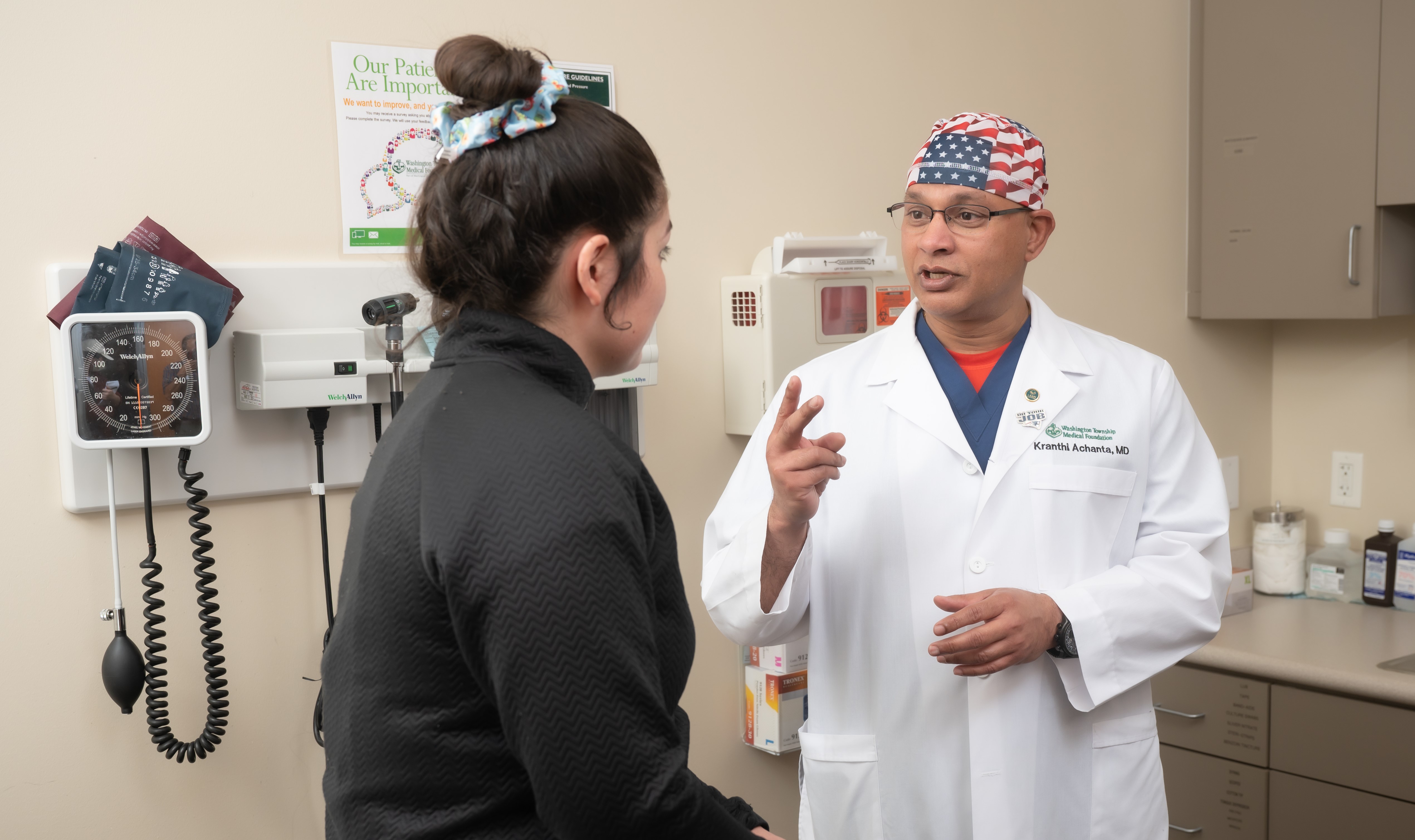
Conditions
General Surgeons at Washington Health Medical Group

This page contains information about conditions treated through our general surgery department at Washington Health Medical Group in Fremont. Our patients come to us from throughout the Bay Area, Oakland, the Silicon Valley, and surrounding communities. We are known for a high standard of excellence and a commitment to best practices in patient care. We are pleased to be able to give our patients reason for confidence in our services.
A general surgeon must have extensive knowledge regarding a broad range of illnesses and conditions that may necessitate surgical treatment, including:
- Adrenal Tumor – An adrenal gland tumor can cause a wide range of symptoms include extreme sweating, hypertension / high blood pressure, low potassium levels, anxiety, heart palpitations, stomach pain, diabetes, weakness, weight gain or loss, excessive hair growth, altered libido, and genitalia changes.
- Breast Cancer – Breast cancer is a type of cancer that develops in the cells of the breast. Women are much more likely to develop breast cancer than men, but it can occur in men. Symptoms can include a lump in the breast tissue, discharge from the nipple containing blood, or changes to the texture or the shape of the breast or nipple. Symptoms are not always clearly present, which is why regular screening—including self-screening—is so important.
- Colon Cancer – The colon is located at the lower end of the digestive tract. This condition describes cancer either of the colon or of the rectum. In some cases, the cancer begins in the form of benign polyps that do not cause symptoms. However, a colonoscopy screening can detect these polyps.
- Colon Polyps – If a colonoscopy detects colon polyps, your doctor may recommend surgical removal of the polyps. Colon polyps are small groups of cells that collect on the colon lining. While these polyps are usually non-cancerous, they can develop into cancer over time.
- Diverticulosis and Diverticulitis – Diverticula are little sacs or out-pouches that bulge out in the direction of the large intestine / colon, occurring in the gastrointestinal (GI) tract wall. There are several conditions that fall under the category of diverticular disease. Diverticulosis occurs when numerous diverticula develop, often due to strain during bowel movements such as may be caused by constipation. This condition is quite common, occurring to 10% of adults over age 40 and 50% of adults over the age of 60. Diverticulitis is a condition that occurs when one or more diverticula becomes inflamed or infected. While there are no symptoms of diverticulosis, symptoms of diverticulitis may include diarrhea / constipation; pain, tenderness, and cramping in the abdomen; and a fever or chills.
- Enlarged Spleen – What causes a splenomegaly—the medical term for an enlarged spleen? In some cases, an enlarged sleep can simply be indicative of an overactive spleen, perhaps caused by a blood disorder. In other cases, an enlarged spleen may indicate cirrhosis or scarring of the liver, other liver conditions, infections, lymph system disorders, certain cancers such as leukemia or lymphoma, trauma caused by an injury, or the presence of a cyst or abscess. Inflammatory diseases such as lupus or rheumatoid arthritis can also cause splenomegaly.
- Gallstones – Gallstones are small, hard deposits that develop in the gallbladder fluid. The gallbladder is a small organ found beneath the liver. In some cases, gallstones do not cause symptoms. If you do experience symptoms, you will likely need surgical gallstone removal.
- GERD – Gastroesophageal reflux disease (GERD) occurs when the tiny ring of muscle between the stomach and the esophagus, which is called the lower esophageal sphincter (LES), is weak or defective and allows stomach contents to back up into the esophagus. This can cause heartburn or acid indigestion. Some cases do require surgery in order to fix.
- Hemorrhoid – Hemorrhoids are swollen veins around the anus / rectum. This condition can cause significant bleeding and discomfort. In most cases, hemorrhoids are caused by obesity, pregnancy, or straining during bowel movements, such as may be caused by constipation.
- Hernia – A hernia occurs when there is an abnormal opening in the body that allows for the protrusion of an organ or tissue through the opening. In most cases, hernias affect the intestine or stomach. While some cases can simply be monitored and do not require surgery, others necessitate surgical closure of the opening.
- Ruptured Spleen – The spleen is an organ in the abdomen that contains a special kind of white blood cells that can help your body fight off infections while producing and removing red blood cells. A splenic rupture is an emergency, causing blood to flood into the abdomen, often as a result of direct trauma, though some illnesses and conditions can also cause the spleen to rupture such as malaria, disorders of the blood, and infectious mononucleosis.
- Thyroid Conditions – The thyroid is a gland located at the base of the neck. It is shaped somewhat like a butterfly. This gland helps regulate the body’s metabolic processes. Some conditions affecting the thyroid may require surgery. Examples of thyroid diseases include hyperthyroidism, hypothyroidism, thyroid cancer, and thyroid nodules.
-
General Surgery General Surgery 39141 Civic Center Drive
Suite 335
Fremont, CA 94538
(510) 248-1450 More Information
View All
/



